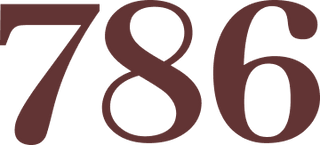Even though it is commonly accepted that Allah (SWT) chose several prophets to recite His teachings, two major doubts remain: how many Islamic prophets were there, and who were they? If you have any questions regarding the prophets, keep reading to find out everything you need to know. Who are the Prophets in Islam?
According to Islamic teachings, God has sent prophets to humanity at various eras and locations to deliver His message. Through these chosen ones, God has sent His guidance since the beginning of time. They were ordinary people who taught others about trust in One Almighty God and how to stay on the path of virtue. Every prophet was sent to spread the message of Allah, but amongst them, only four received new rulings hence the Torah, Bible and, etc.
The Message of the Prophets

Muslims believe that the prophets offered their people counsel and teaching on worshiping God and living their lives appropriately. Because God is One, His message has remained consistent throughout history.
In essence, all prophets preached the Islamic message: Submitting to the One Almighty Creator, believing in God, and following His counsel.
Who was the First Prophet?
The first Islamic prophet is Adam (A.S). Adam (A.S) and Hawa (R.A) (Eve) were the first humans on the planet, and he is regarded as the father of the human race. Allah (SWT) has created Adam and Eve out of clay and given them free rein in Paradise.
He told them they could have everything they wanted as long as they didn't eat the forbidden fruit from the tree in Paradise, but they defied Him and sinned. Allah (SWT) punished them by sending them to Earth, where Adam (A.S) had to learn how to cultivate crops, bake, and survive - skills he passed down to his successors.
Habil, Qabil, and Sheath were among many children of Adam (A.S) and Hawa’s (R.A). Allah (SWT) asked both Habil and Qabil to provide a proper sacrifice. Allah (SWT) praised Habil's work but disapproved of Qabil's.
Qabil flung a rock at Habil and murdered him in a fit of fury and jealously, marking the first murder on Earth. When it came time for Adam (A.S) to choose a successor, he decided Sheath, who became the second prophet.
Who are the Prophets in Islam?

Following Adam (A.S), Islam's first prophet, and his son Sheath, the following 23 prophets appeared in order:
Idris - Idris (also known as Enoch) was a Babylonian. He followed Prophet Sheath's laws and teachings, and when he reached adulthood, he received the Revelation and was given prophethood by Allah (SWT). After witnessing the people committing sins despite his cautions, Idris fled Babylon. Idris attracted some followers, and they left Babylon for Egypt. Idris devoted a lot of time preaching, worshipping, and investigating his forefathers, Adam (A.S) and Hawa (R.A). He is thought to have had considerable intelligence.
Nuh - Nuh (also known as Noah) heard a message from Allah (SWT) warning of impending disaster unless humanity began to recognize Him as the one true God. Nuh faithfully spread the word of Allah (SWT). He attempted to warn people that they would be punished if they continued to worship many gods. Because the people refused to listen, Nuh built an ark to save the lives of those who did eventually listen to him. He admitted two of each sort of animal and awaited the Great Flood, which Allah (SWT) had predicted would occur, and which occurred.
Hud - He was dispatched to preach monotheism to the Arabic descendants of Nuh known as 'Ad, desert traders who had yet to convert. Because they disobeyed Hud's warnings, they were decimated by a sandstorm.
Saleh - Saleh was sent by Allah (SWT) to promote His teachings in Thamud, and he campaigned against the Shirk's greedy wealth. Thamud's people would not trust him unless he accomplished a miracle. The inhabitants of Thamud were given a she-camel by Allah (SWT), but they hobbled it, and Saleh told them that as a result of their deeds and disbelief, Allah (SWT) would punish them with an earthquake.
Ibrahim - Ibrahim is one of the most respected prophets, and Qurbani honors him for his dedication to Allah (SWT). Allah (SWT) asked Ibrahim to sacrifice his most prized possession: his son, Ismail. Ismail and Ibrahim debated the command, and it was agreed that it should be carried out as an act of obedience to Allah (SWT). Allah (SWT) rescued Ismail's life at last by swapping him for a ram, revealing the whole incident to be a test.
Ismail - Ibrahim's son, Isma'il (Ishmael), was born to Hagar and is Muhammad's ancestor.
Ishaq - In the Bible and the Quran, Ishaq (Isaac) is also Abraham's son, and both he and his brother Ismail continued to preach after Ibrahim's death.
Lut - Lut (Lot) was a member of Ibrahim's household who was dispatched to Canaan to serve as the prophet to the fatal cities of Sodom and Gomorrah.
Ya'qub - Ya'qub (Jacob), a descendant of Ibrahim, was the father of Israel's 12 tribes.
Yousef - Yousef (Joseph) was Ya'qub's eleventh and most adored son, who was thrown into a well and saved by a passing caravan.
Shu'aib - was a prophet sent to the Midianite community who worshiped a sacred tree and is sometimes confused with the Biblical Jethro. Allah devastated the community because they refused to listen to Shuaib.
Ayyub - Also known as (Job), endured for a long time and was tested by Allah, but he never wavered in his faith.
Musa - Also known as (Moses), who grew up in Egypt's royal courts and was sent by Allah to preach monotheism to the Egyptians, received the Torah's Revelation (known as Tawrat in Arabic).
Harun - Musa's brother, Harun (Aaron), stayed with their kinsmen in the Land of Goshen and became the Israelites' first high priest.
Dhu'l-kifl (Ezekiel) - also known as Zul-Kifl, was an Iraqi prophet who was sometimes confused with Joshua, Obadiah, or Isaiah instead of Ezekiel.
Dawud - The Divine Revelation of the Psalms was given to Dawud (David), king of Israel.
Sulaiman - Also known as (Solomon), the son of Dawud, could communicate with animals and rule over djinn; he was the Jewish people's third monarch and the greatest of world rulers.
Ilias - known as (Elias or Elijah), often spelled Ilyas, was a prophet from Israel's northern kingdom who championed Allah as the genuine religion against Baal followers.
Al-Yasa - Although the Bible's stories are not replicated in the Quran, Al-Yasa (Elisha) is commonly associated with Elisha.
Yunus - After being devoured by a large fish, Yunus (Jonah) repented and worshipped Allah.
Zakariyya - Also known as (Zechariah), was John the Baptist’s father, a holy priest who died for his religion and the guardian of Isa's mother, Mary.
Yahya - Known as (John the Baptist) was a witness to Allah's word, which would announce Isa's advent.
Isa - In the Quran, Isa (Jesus) is described as a messenger of truth who preached the straight road.
Muhammad - In 610 CE, at the age of 40, Muhammad, the father of the Islamic empire, was called to be a prophet.
Bottom-Line

Although there are no female prophets in Islam, women are revered since they are the mothers of the prophets and played a crucial role in their upbringing.
The Qur'an refers to Prophet Muhammad (PBUH) as Khatam-un-Nabiyeen, which means "seal of the prophets." This is commonly interpreted to signify that Prophet Muhammad (PBUH) was the final prophet and that no other prophets would follow him.
If you have any questions concerning the prophets or their teachings, you should seek advice from your local imam. Follow our website and Instagram account for more informative blogs and weekly updates!


